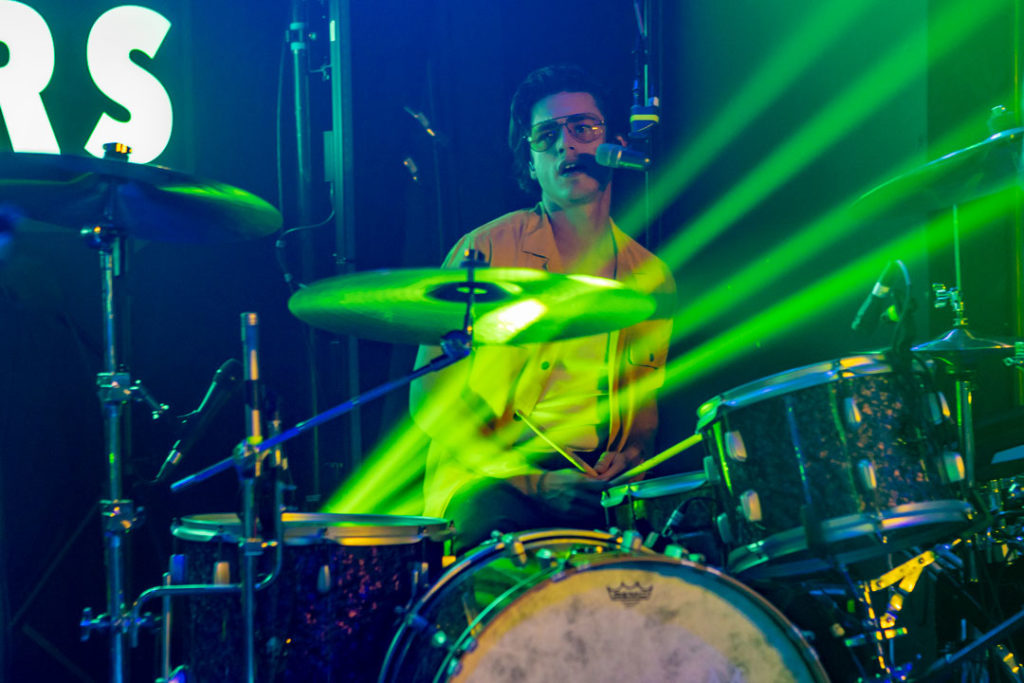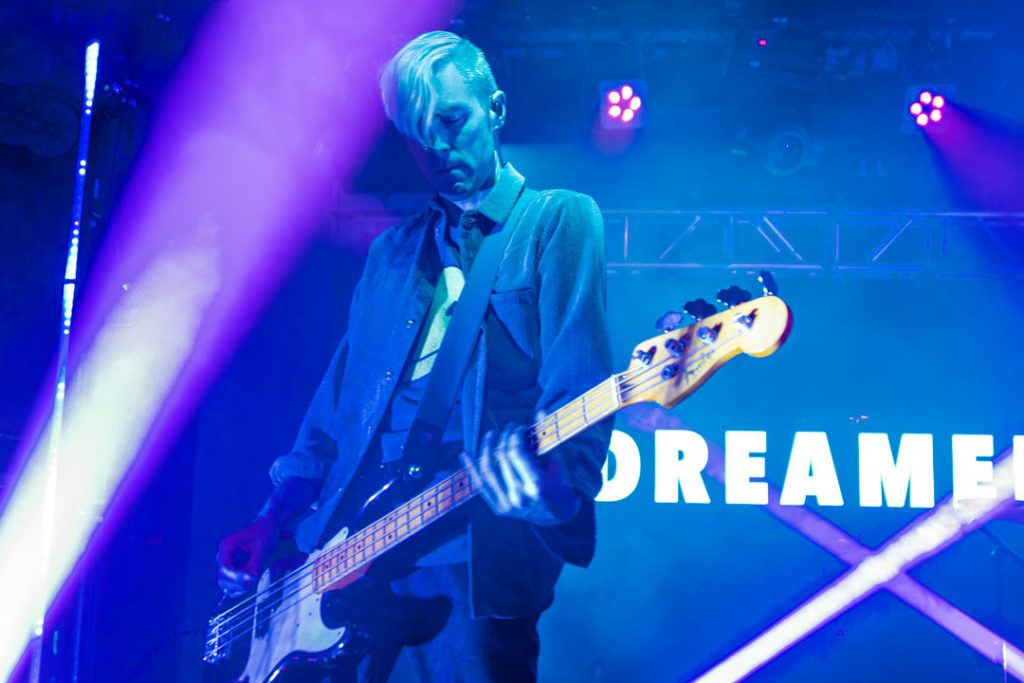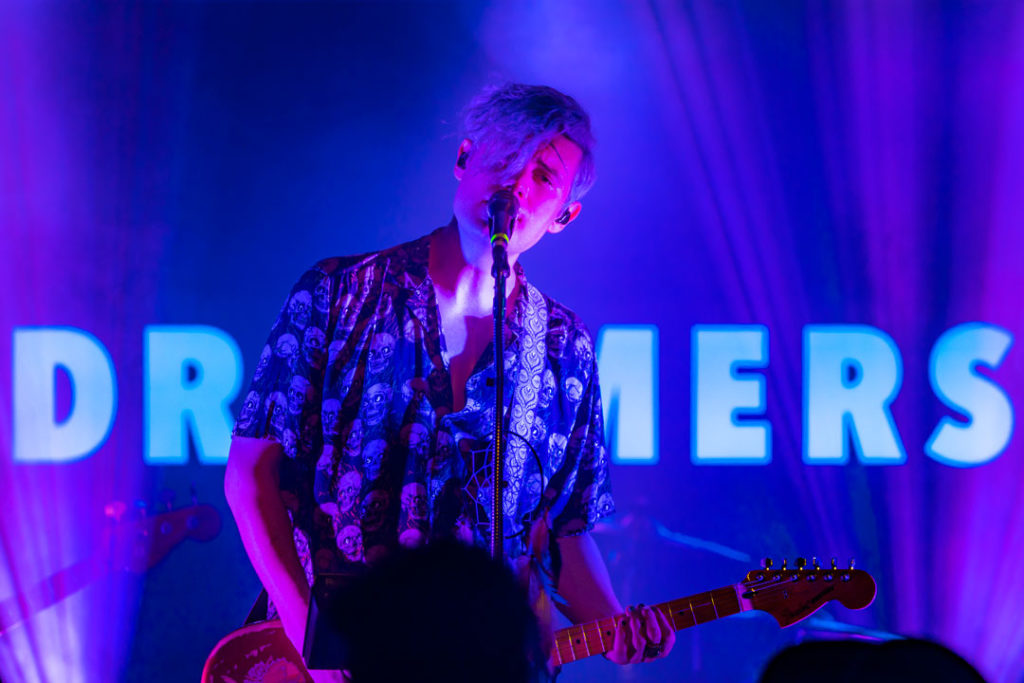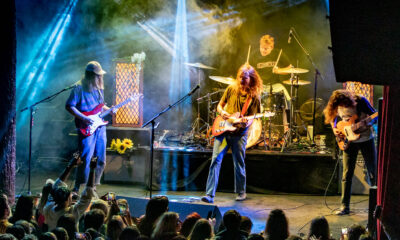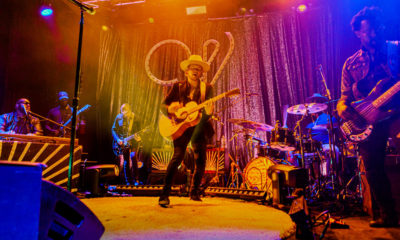Features
An Interview With DREAMERS – Now You Can Die Happy
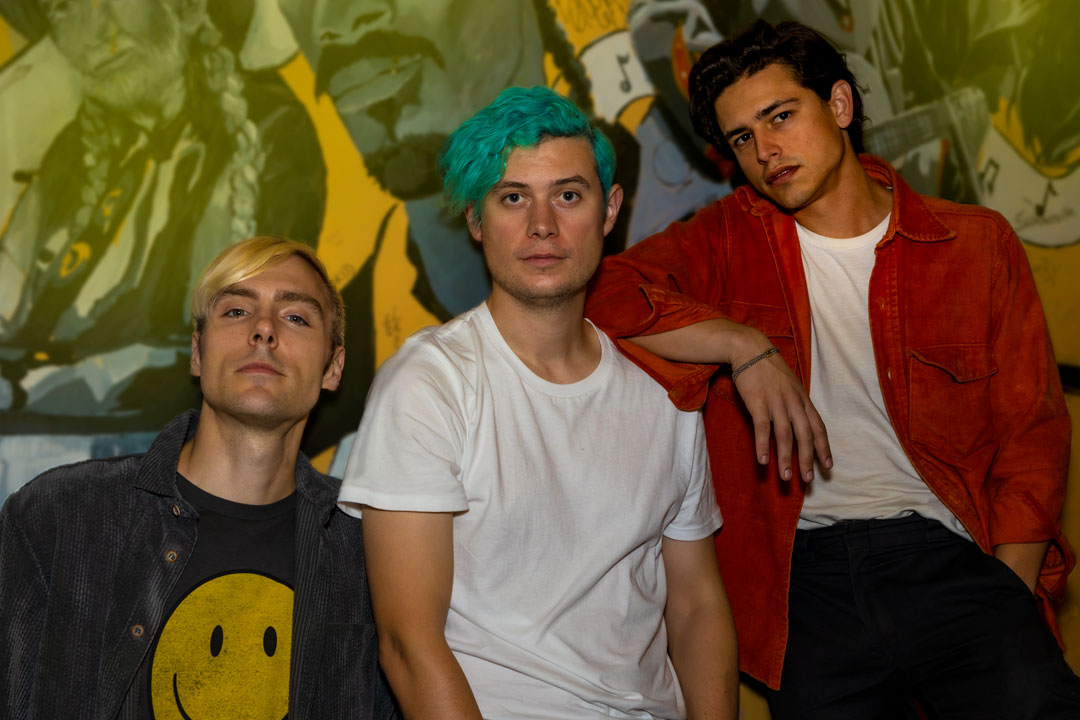
A quick DREAMERS backstory for the uninitiated.
Seattle native Nick Wold moves to New York City to study jazz saxophone at NYU. After graduating he realized rock music is his passion and moved into his rehearsal space to focus on songwriting. This choice allowed Nick to work part time and dedicate himself to the music. He worked as the lead singer and guitarist in a grunge band called Motive with longtime friend and drummer Chris Bagamery. Following the breakup of Motive, he connected with Marc Nelson, who after touring with a USO band ended up in New York City working as a studio musician. He now just goes by Nelson and plays a P-Bass, just like Sting. Nick, Chris and Nelson formed the original DREAMERS and released debut single ‘Wolves.’ It got heavy airplay and kicked off an intense touring schedule. The band signed a record deal and decides to move to Los Angeles, but Chris was done with touring and leaves. In L.A. they audition drummers and clicked with Jacob Wick who grew up in a family of musicians. And so the triad was complete.
In 2016 DREAMERS release their debut album This Album Does Not Exist which included the hit ‘Sweet Disaster,’ they kick off a relentless touring schedule, playing everywhere from tiny bars to festivals such as Lollapalooza, Firefly, Bumbershoot and Bonnaroo. Garnering major success, the band slowly released new music through EPs and earlier this year they issued their sophomore album, Launch Fly Land which features 10 tracks (including the top 10 hit ‘Die Happy’). Their adventures have allowed them to share the stage with the likes of Stone Temple Pilots, X Ambassadors, The 1975, The Griswolds, Catfish and The Bottlemen and Weezer.
We had a chance to sit down with these cosmic rockers during their hectic tour to see how the touring life was going and what makes them tick.
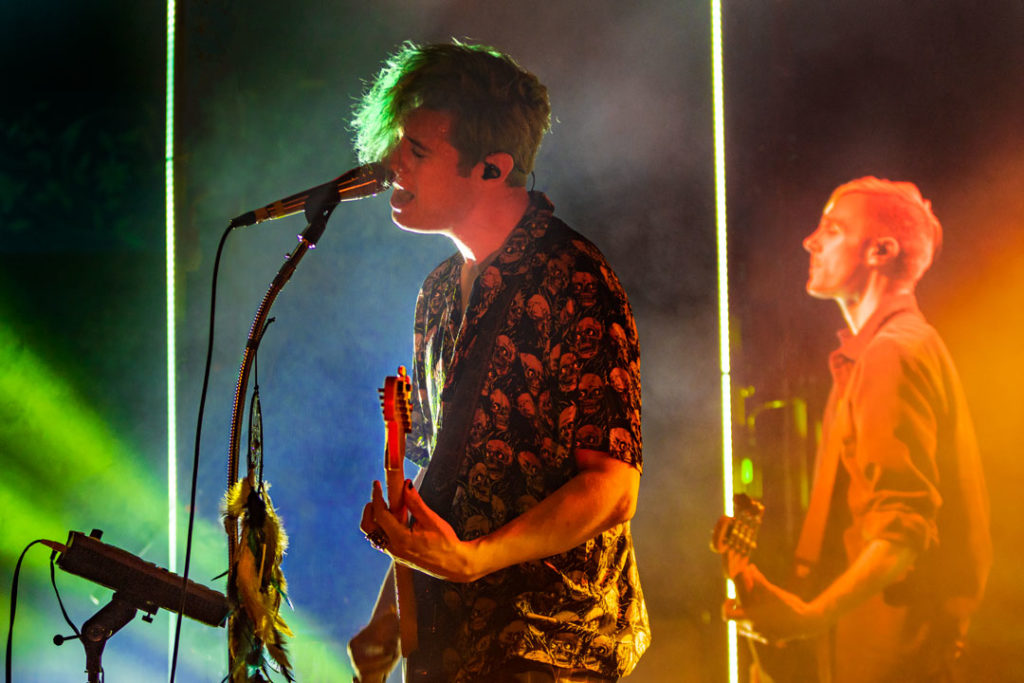 You recently finished up a tour with 311 and Dirty Heads and are now kicking off your own headline tour. How does that feel and does that add pressure during the performance?
You recently finished up a tour with 311 and Dirty Heads and are now kicking off your own headline tour. How does that feel and does that add pressure during the performance?
Nick – It’s pretty different. I don’t know if it’s more pressure it’s kind of more fun we’ll get our own crowd in there you know, singing the words to all of our songs. In an opening slot we are kind of auditioning ourselves to someone else’s fans. So, it’s fun plus we get to play longer. We get to pick openers that we love, it’s our party. The tour was amazing this summer 311, Dirty Heads, The Interrupters and Bikini Trill it was kind of like this crazy festival and everybody was super rad. We had a really great time, but I think this tour is just a little bit more our show.
This is the second night of the tour. How is it going?
Nick – Yeah, it’s fresh but the first show went well. I was nervous about the first show because it’s the rustiest one. We are working out the new lightshow and everything worked. It was awesome!
‘Sweet Disaster’ peaked at #7 and ‘Die Happy’ is a Top 10 hit. When you first recorded these songs did you immediately feel it was one of the strongest songs on each album?
Nick – Definitely not the first album. I feel like the first album was just like, no idea, it was just writing music. It feels kind of lucky that ‘Sweet Disaster’ did so well on the radio. They keep playing it even today. Second record, I feel like we have a better idea of what we are. It was kind of like you could tell after we listened, we were like this song works on the radio, this song doesn’t. Yeah, we really just pick our favorite song, one that we think is really good and put it out there. Hope for the best we’re gamblers for sure.
How did the Wombats Remix of ‘Die Happy’ come about?
Nick – That was awesome! We played some shows with the Wombats. I wrote a song with Murph (Matthew Murphy). They’re just really cool guys and they wanted to do that, so we were super stoked on it. It came out and it sounded amazing. That just kind of fell into our laps thanks to the brother’s Wombats. We’re starting our English touring life. We just did our first shows and we’re going to be getting back to a tour there real soon.
Nelson – Yeah, we’re eager. We had like a month-long tour that was supposed to happen in the UK that ended up not for various reasons so we’re itching to get in there and do that.
You released an infomercial type video to promote the new album and your website has a call now number 833 DIE-HAPY. It feels like something Talking Heads might do if they existed to today. Where did those concepts originate from?
Nick – I don’t know, it goes back to the beginning when we first made the website, we didn’t have the budget for a good website so we wanted to make it seem like some lost corner of the internet from 1995.
Jacob – Yeah, we always talk about the nostalgic things, like remember when you would call in and be able to press different numbers and hear different menu items for like Blockbuster.
Nelson – And we have an infomercial that was like those old mix CDs they used to sell where the songs would scroll through the commercial.
Nick – It’s just all part of the DREAMER’s universe.
How does Dreamers start a new song? A guitar riff? A lyrical hook or what?
Jacob – Yeah but you usually start with something you want to say.
Nick – I have a lot of things that I want to say. I’m always thinking of that and have like a black book which is actually a phone. All of little ideas but on the day of writing it’s just music I think like a rhythm first, like a beat and go from there. Then kind of think once you have the vibe then you kind of think which words would work or what does this mean. I’ve tried it every possible way. I’ve tried lyrics first and it never seems to work like writing a whole lyric and putting music to it. I can never make that work.
Nelson – Sometimes we’ll start with a musical idea and we’ll start putting parts down and then we’ll play it for a while and then just be like this isn’t it, it’s not working. Once it kind of gets to the lyric part where it’s like, let’s do a different idea.
Nick – There’s no wrong way to do it, there’s no right way to do it. I’ve heard some people that do lyrics first, some people write at night, some during the day, some while drunk.
Nelson – ‘Under the Bridge’ was apparently a poem that Anthony (Kiedis) had written. He said wasn’t a song and that he put music to later.
Jim Morrison of The Doors turned many of his poems into songs.
Nick – Yeah just do a ton of acid and write some poems.
What is your favorite non-Dreamers song right now?
Nick – Lata Mangeshkar. We’re listening to a whole lot of world music. This amazing Indian singer and this band from Somalia.
Jacob – They’re called Dur-Dur Band
Nick – An 80’s Afrobeat band.
Jacob – They have a song called ‘Dooyo’ that is just fantastic.
Nelson – These were actually like the songs that we were listening to today on the way here.
Nick – We change it up in the van, you know, many hours on the road we get into some crazy stuff.
Nelson – It’s just a different vibe too. We were just in L.A. for a little bit and I listened to alternative music all day long. Sometimes just being in that world playing something totally outside that world feels more like relaxing.
Today it seems like it’s important to continually release new songs. How important is that, to constantly have something new coming out?
Nick – We feel compelled to do that. I kind of get it. Listening on Spotify you have billions of songs, I don’t usually listen to a whole artist album until I’ve heard a single that I like.
Jacob – Unless it’s like a band that I’ve been following for a long time.
Nick – Yeah, we’re old school. We love having albums out, but our answer is to do both. Make a bunch of singles and do EPs.
Nelson – We’ve done a couple Eps, like quick release EPs that were just songs that we liked that we just wrote and produced and just release them. We’ve got another album coming but we’re going to do a single in a couple weeks and probably do another single after that then an EP and then a new album. It makes me sad as a musician, I think a lot of young people probably aren’t listening to albums. It makes me sad just cuz I grew up that way and it’s like you pick a record and for those 45 minutes you’re committing to it.
Nick – We do sell the vinyl at shows and people do buy it, so someone is listening.
Hip-hop / rap artists have used collaborations with other musical genres to widen their audience. Why do you think rock artists have been slow to embrace that concept?
Nick – Yeah, we are. I think it’s a tradition more in hip hop and alternative people tend to be bands. I’ve noticed alternative artists actually doing that a lot more lately.
Jacob – We haven’t spoken up as clearly as how much were actually doing it. We are collaborating behind the scenes a little more than people realize.
Nick – We moved from New York to L.A. when we signed a record deal. In LA we met so many rad bands and bands we toured with and we write with basically all of them.
Jacob – We should list off some of the people we have written with.
Nick – I just wrote a song with Dan (Daniel Armbruster) from Joywave and with Jason (Jason Suwito) from Sir Sly and I wrote with Robert DeLong, The Griswolds, The Wrecks and Smashing Pumpkins, that was awesome. Yeah so like that’s actually happening a ton in L.A. which never happened in New York. It’s kind of a cool scene that were finding there.
Constantly touring seems to be necessary for a band to survive today but it is also incredibly stressful to members and has caused many bands to implode. How do you resolve issues within the band?
Jacob – Communication is key.
Nelson – You don’t, you don’t resolve it. It just seethes all the time. You have got to talk, it’s like a marriage. Being in a band is like being married to your bandmates. It’s really no different because you’re spending every day in small spaces.
Nick – Bands die from the inside not because it’s too challenging. It’s challenging to maintain a good vibe, that’s why it’s just all about having fun together. Having a good vibe and having a good crew.
Jacob – You got to respect each other’s time and communicate and don’t be an asshole.
Nick – Touring life is already hard if you’re with people you don’t like it’s impossible.
The music industry has changed drastically over the years. Streaming services have replaced album sales and bands are looking for other ways to generate revenue. Green Day just announced a partnership with the NHL and your tour mate Barns Courtney has a sponsorship deal with Motel 6. What other changes in the industry do you see coming?
Jacob – I’m partnering with marijuana.
Nick – I think people are always just figuring out ways to change the industry. People do pay more for concert tickets now than ever. Before, like back in the day, you would see Pearl Jam for ten bucks. Now people pay two hundred bucks to see them because they’re not paying for the music. Back then it would have been considered selling out to partner with NHL or whoever it is. Now it’s totally cool and fans love it. We’re just going through a little puberty phase in the industry.
Jacob – I think partnering is definitely going to stick around for a bit. Every band is a way of advertisement.
Nick – Every company wants people who have a lot of followers and bands have that.
Features
Tears for Fears Brings Thunder and Lightning to Dallas
The Tipping Point World Tour Kicks Off
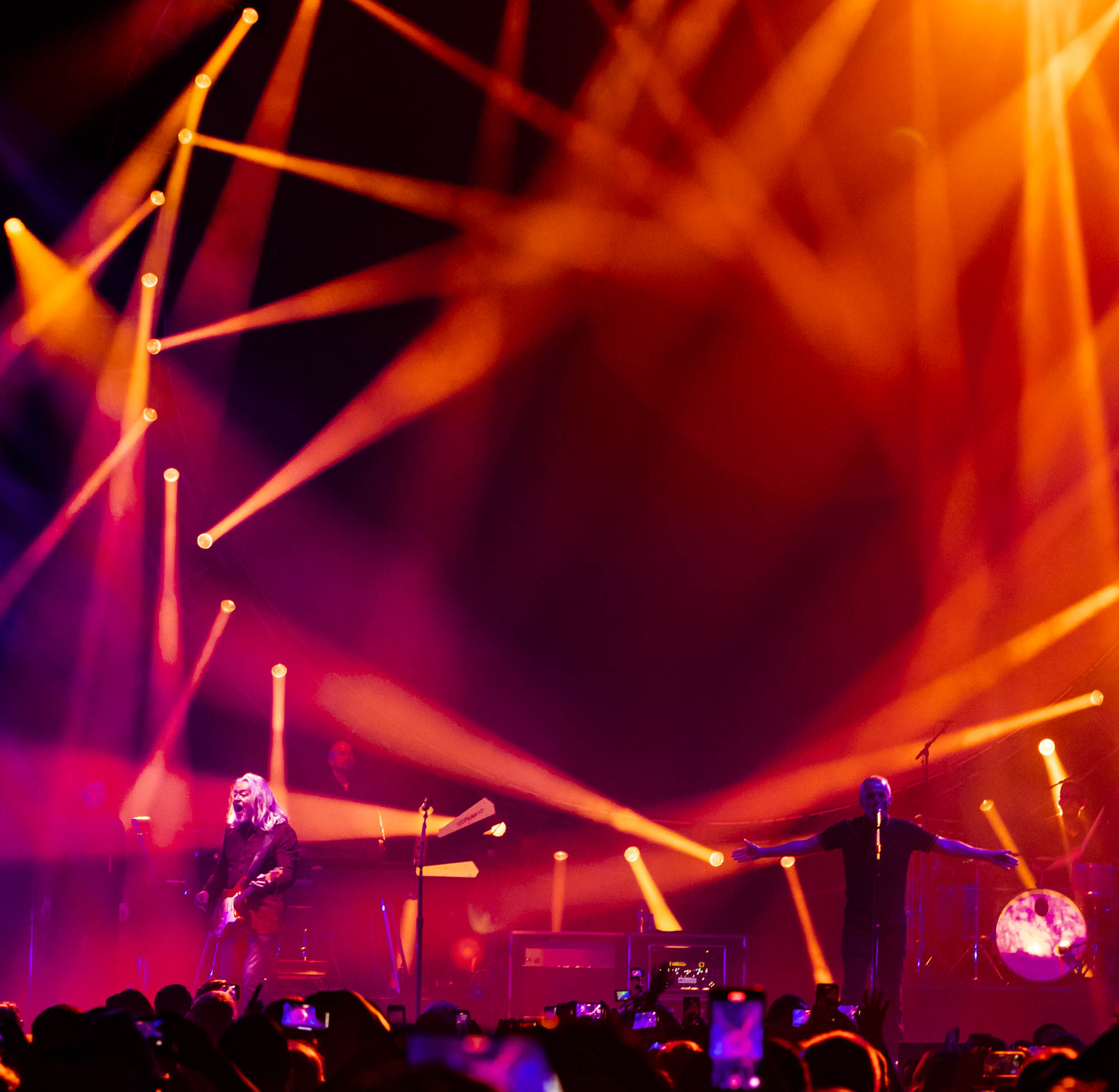
With thunder and lightning present outside The Pavilion at Toyota Music Factory, the band seized the moment by rocking the inside as well. Tears for Fears co-founder Roland Orzabal addressed the crowd, “We brought a bit of English weather with us.”
Straight away it was clear that this would not be a legacy tour where the band just plays their most popular songs. Much of the set consisted of songs from their new album, The Tipping Point, and for good reason. This critically acclaimed album is on par with their first three and in some ways even better.
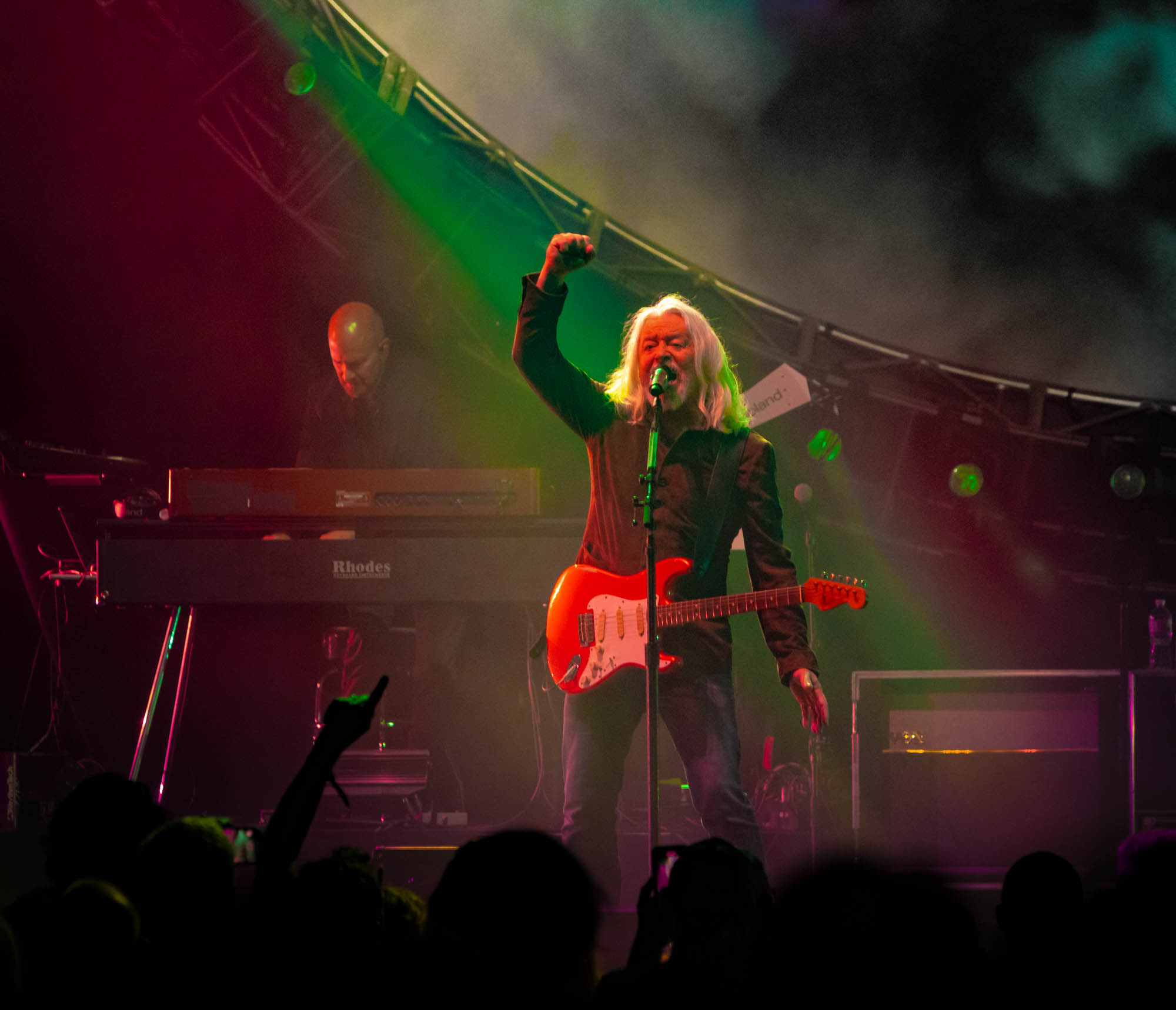
Sure the fan demographic definitely skewed toward those who grew up in the MTV generation but there was a fair representation of younger fans who most likely first experienced Tears for Fears through a video game or TV show. Regardless of how they got there the audience embraced this special moment, singing along and swaying to tune after tune. With the hits receiving the most enthusiasm from the crowd, Orzabal jokingly stated, “I guess a lot of you haven’t bought the new album yet.”
Vocally the band didn’t miss a beat, with co-founder Curt Smith sounding as good as ever and proving they are still able to move an audience in the most cathartic ways. You could sense the confidence in Orzabal and Smith’s harmonies as they hit as hard as ever and backing singer Carina Round pulled it all together with her gorgeous voice.
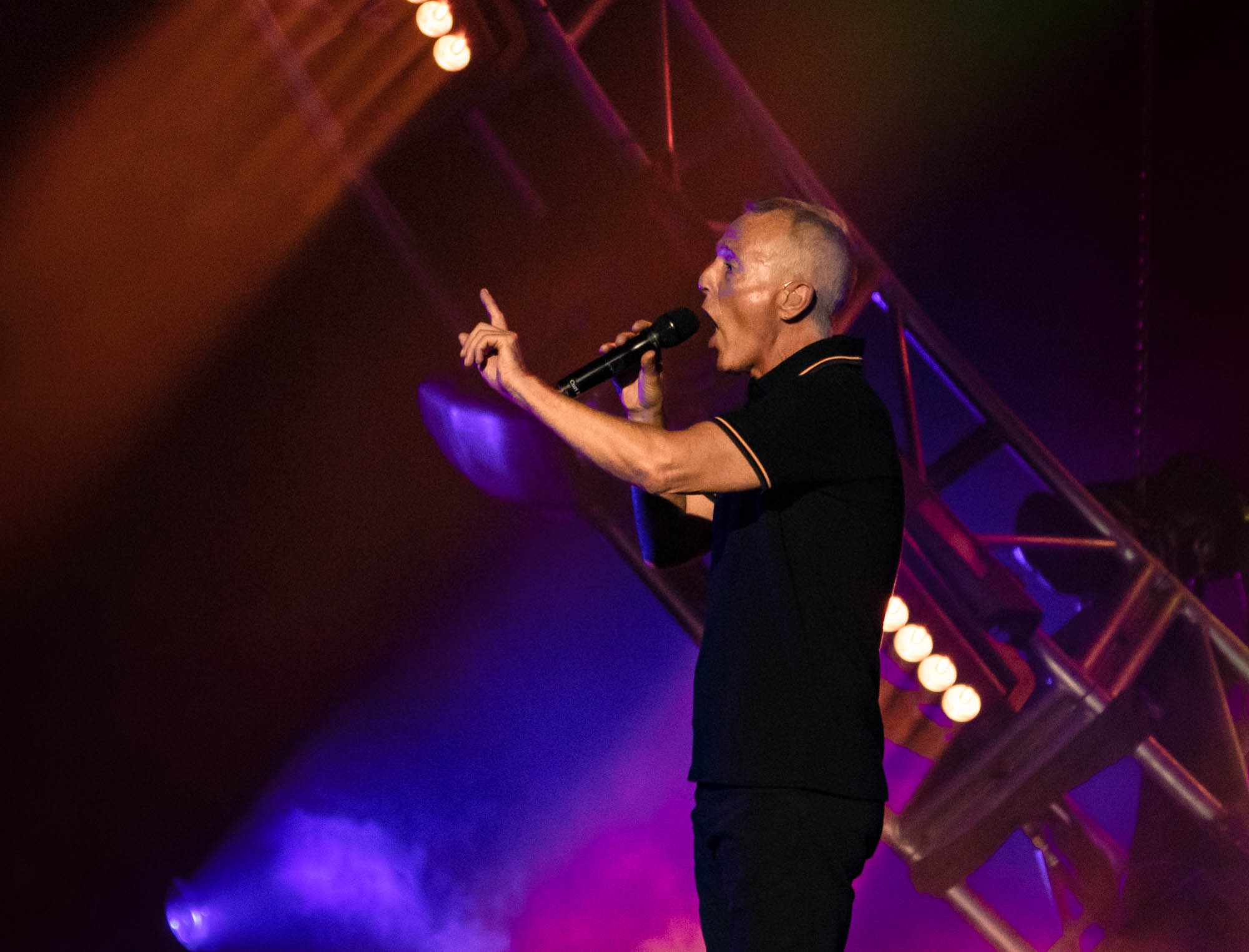
Setlist
No Small Thing
The Tipping Point
Everybody Wants to Rule the World
Secret World / Let ‘Em In (Wings cover)
Sowing the Seeds of Love
Long, Long, Long Time
Break the Man
My Demons
Rivers of Mercy
Mad World
Suffer the Children
Woman in Chains
Badman’s Song
Pale Shelter
Break It Down Again
Head Over Heels / Broken
Encore
End of Night
Change
Shout
Features
Mitski Returns From Hiatus with New Album and World Tour
Set List and Pics from Dallas, Texas Concert

In 2019, Mitski decided to walk away from music. She announced that she’d be stepping away indefinitely, but just over two years later, Mitski returns with her sixth album, Laurel Hell and a 53 stop tour covering North America and Europe. The Factory in Dallas, Texas was the seventh stop in her completely sold out tour.
Her 23 song set includes six songs from the latest album, Laurel Hell, with the rest pulled from her older material. The stage design is minimalistic, composed of a stage prop door and decorative stage lights. Mitski‘s movements are very deliberate as she runs and dances across the stage, somehow appearing apprehensive but totally in control. The tone and mood of the songs is shaped through her visual expressions and the ever-changing lights pointed towards the audience.
The dedicated fans of Mitski adored every second of it, singing along, dancing and reveling in her presence.
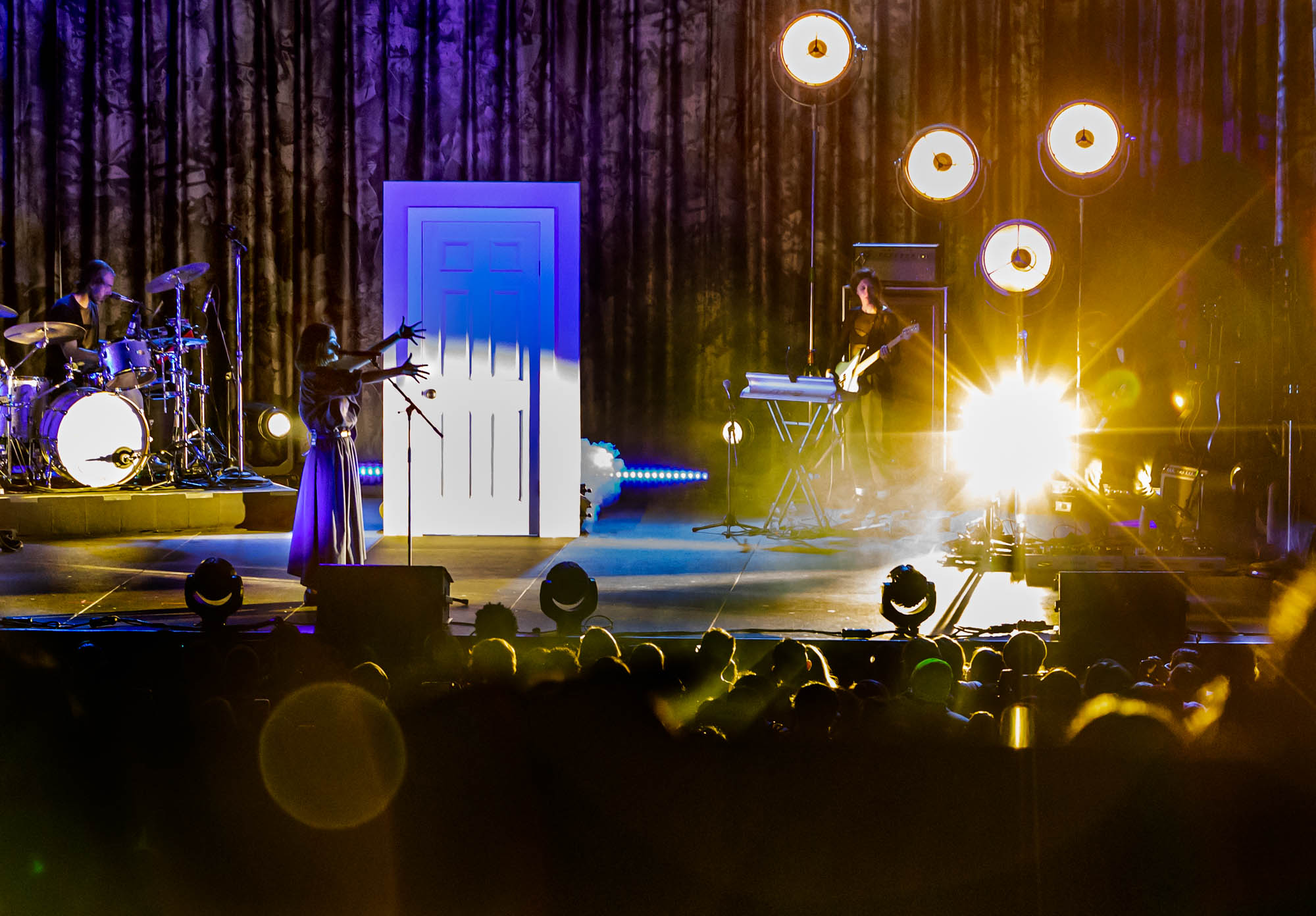
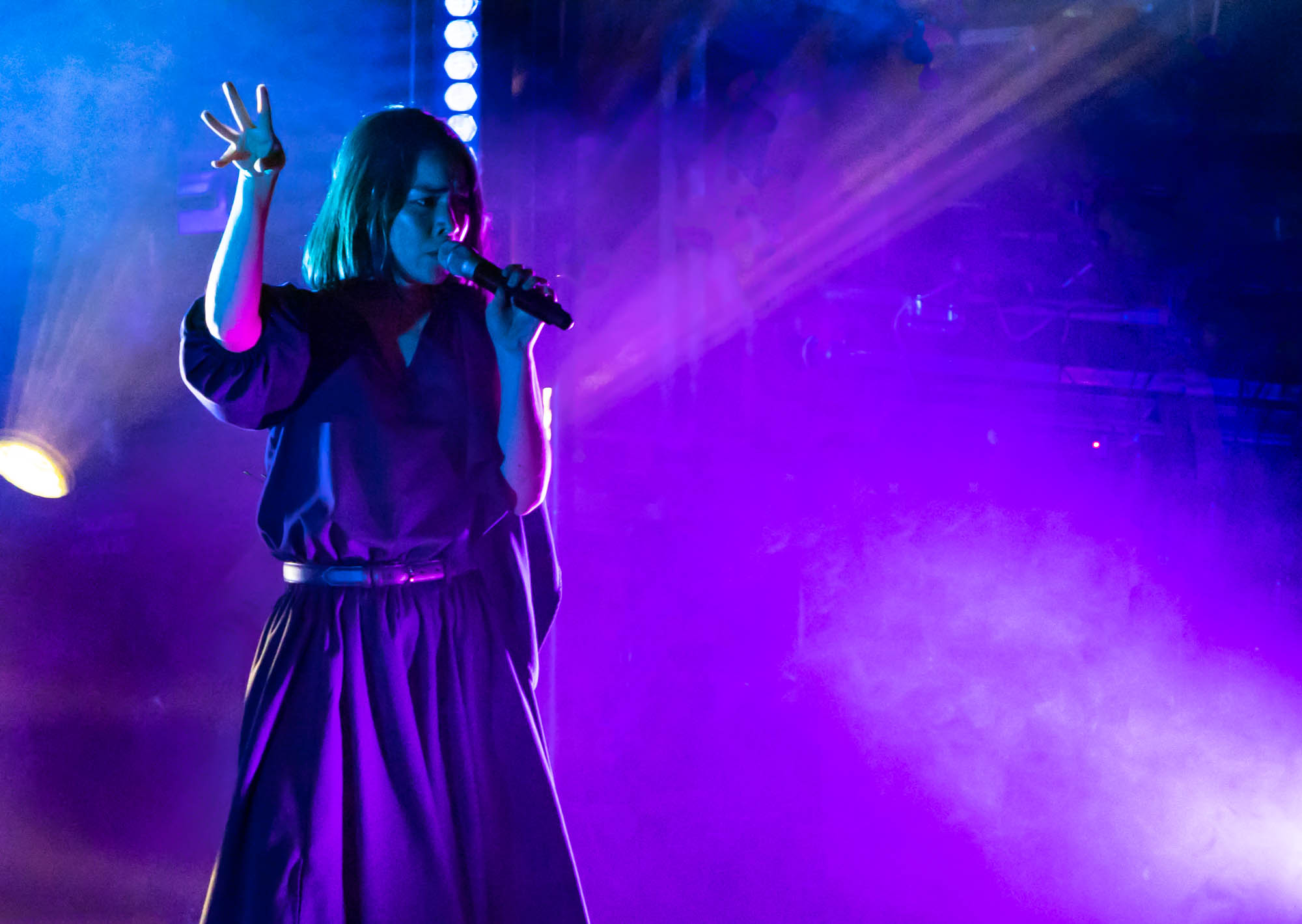

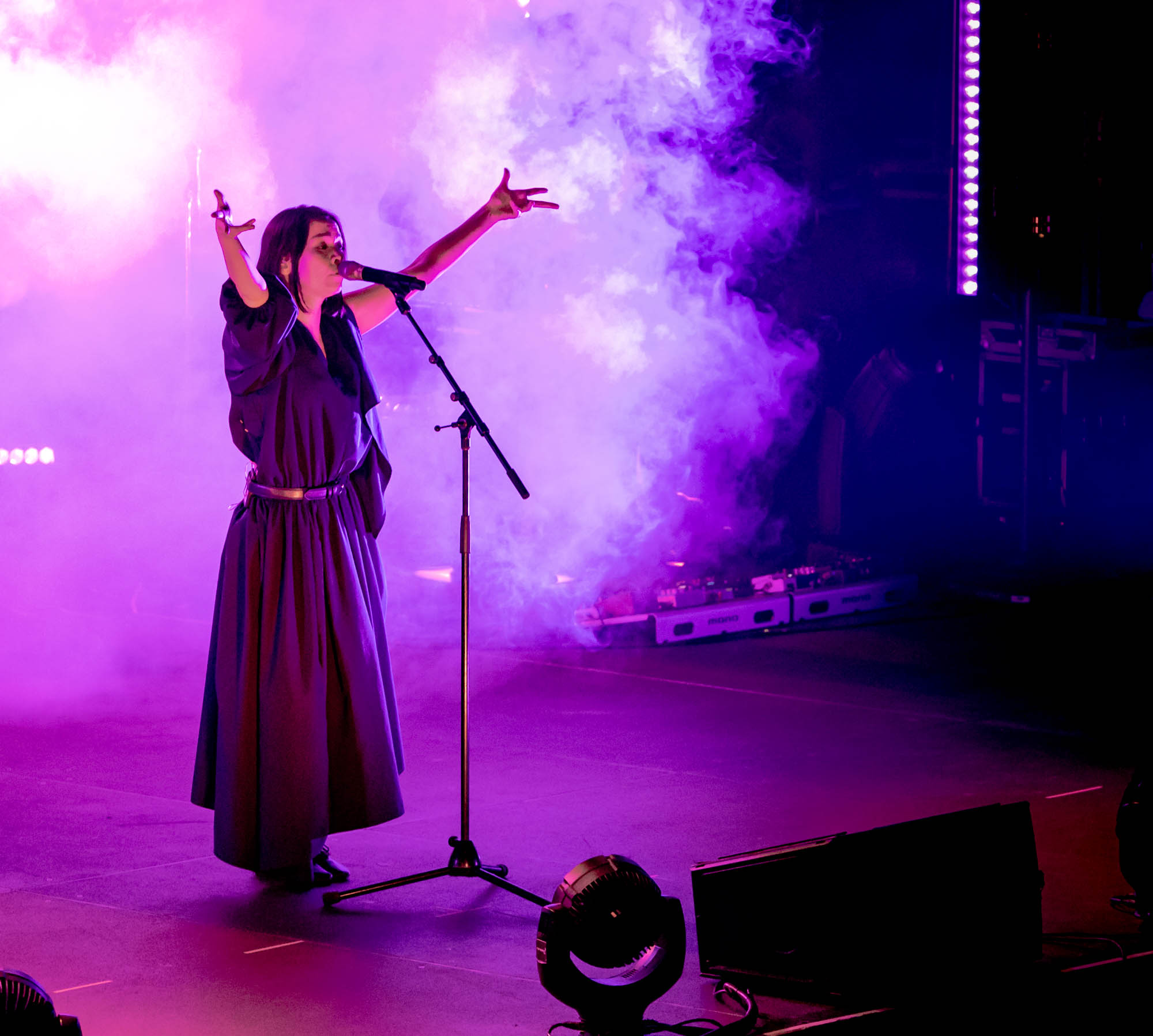
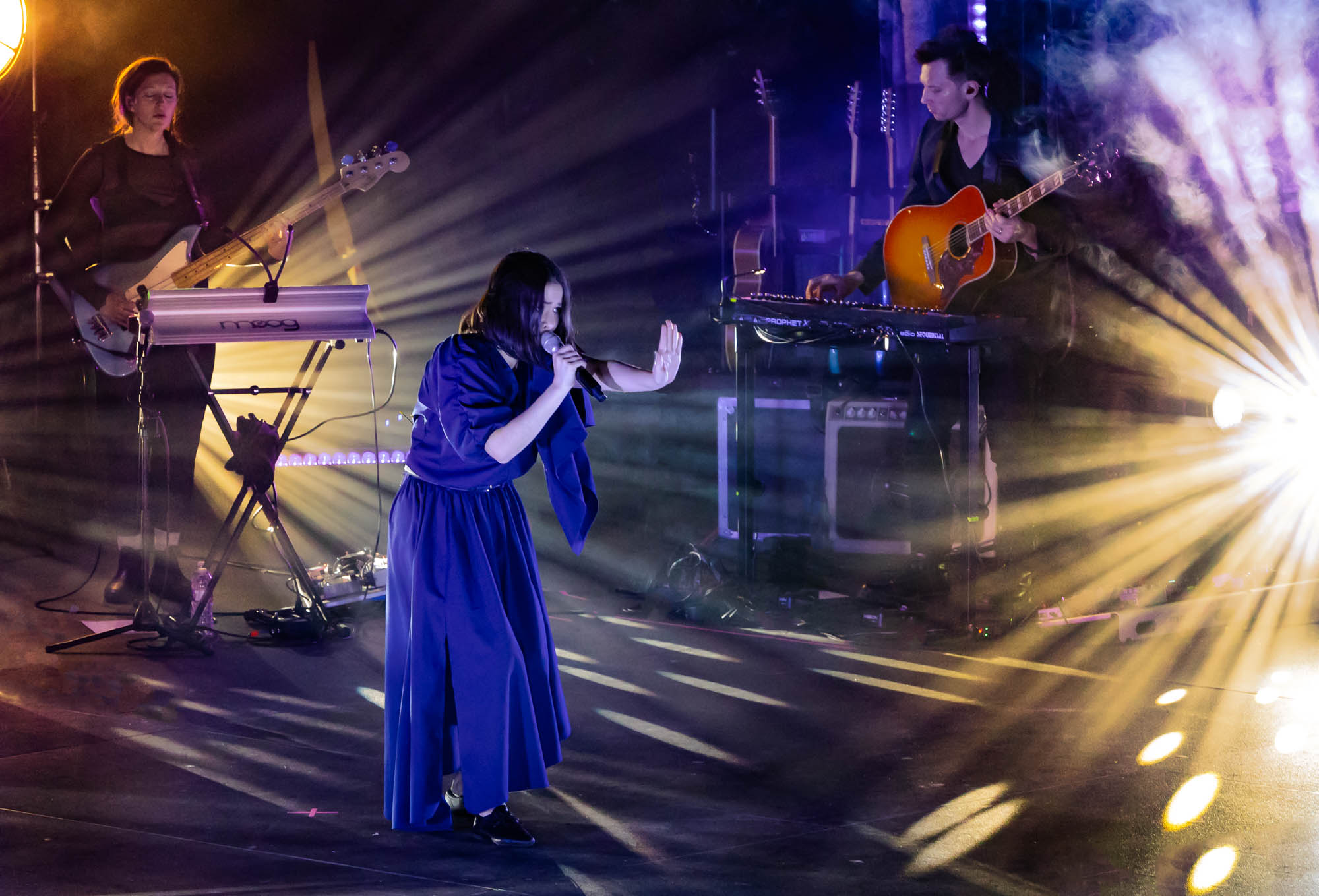
Set List
Love Me More
Should’ve Been Me
Francis Forever
First Love / Late Spring
Me and My Husband
Stay Soft
Townie
I Don’t Smoke
Once More to See You
Nobody
I Will
Drunk Walk Home
Happy
Your Best American Girl
I Bet on Losing Dogs
The Only Heartbreaker
Geyser
Working for the Knife
Heat Lightning
Goodbye, My Danish Sweetheart
Washing Machine Heart
A Pearl
Encore:
Two Slow Dancers
Features
The Resilience of Toad the Wet Sprocket in Disposable Times
Starting Now marks their return after eight years
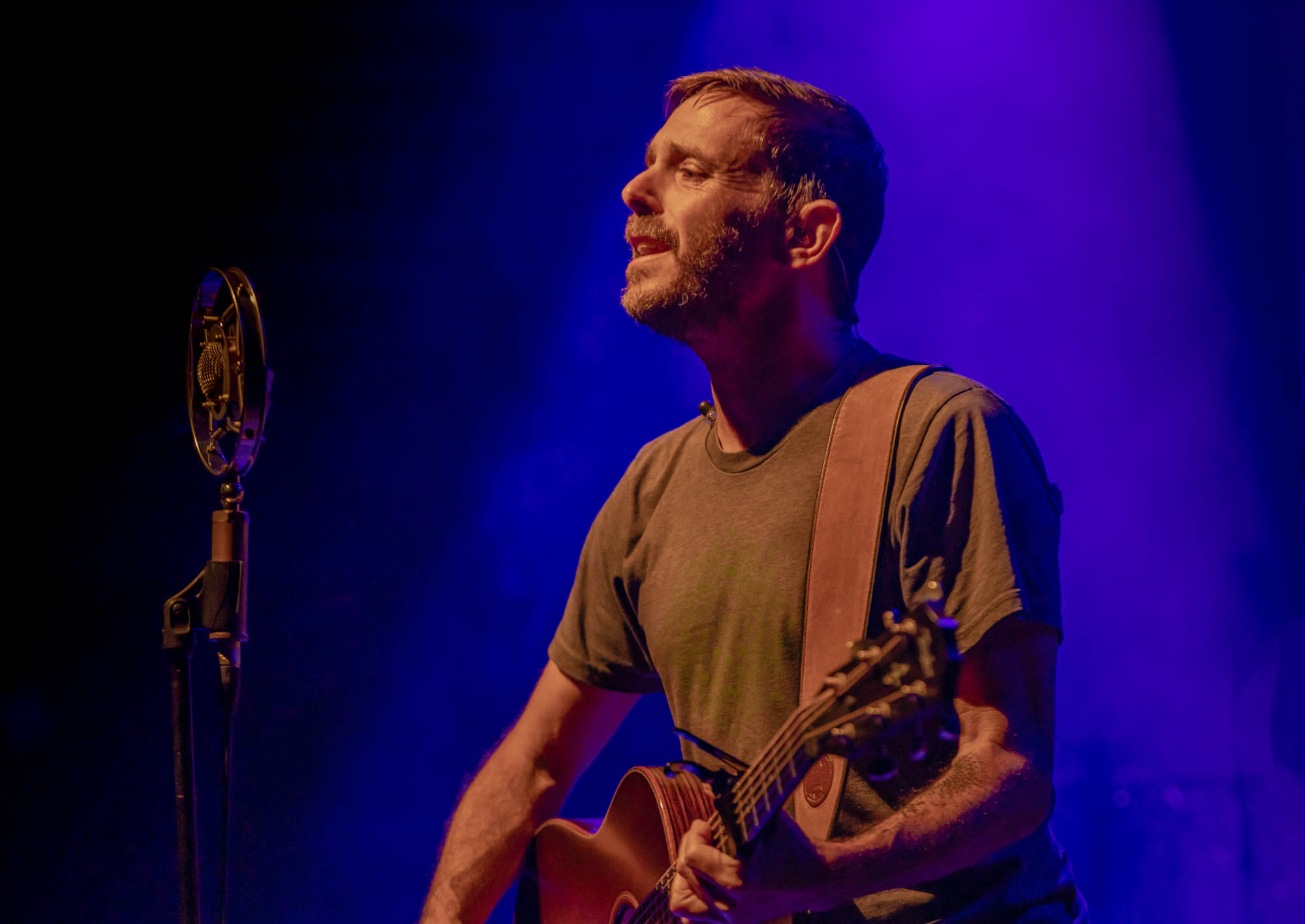
The Cali alt-rockers Toad the Wet Sprocket formed in 1986 and spent the next five years mastering their craft. The 1991 release fear, marked their commercial breakthrough with chart-topping singles All I Want and Walk on the Ocean, the quartet’s popularity soared. They continued with 1994’s Dulcinea and 1997’s Coil, which contained another string of successful hits such as Something’s Always Wrong, Fall Down, Fly from Heaven, Crazy Life and Come Down.
In 1998 the group officially disbanded but for the next ten years they performed on numerous occasions and in 2009 the band reformed. They continued performing, re-recorded some older hits and launched a very successful Kickstarter which resulted in the release of New Constellation in 2013. Another eight years would pass until Toad the Wet Sprocket entered the studio again to record the long-overdue next studio album, Starting Now.
We caught up with the band’s frontman Glen Phillips during their recent tour to discuss the new album, touring and life.
How did Starting Now come to be?
Actually, I started recording another solo record and I was really loving the songs and I was thinking, why am I doing a solo record right now? What am I trying to prove? It’s been a long time since I wanted people to hear these songs. If I put this on a solo record, then I don’t get to play them on a Toad record and I just think I finally took the chip off my shoulder about the band. We’ve been in those years too, we changed. Randy (Guss), our original drummer, left the band and so we had to adjust to this idea of what we are right now and kind of figure out our new relationships with each other because we’ve been together for 35 years. So it’s a very familial dynamic and I had this realization that I’d rather make a Toad record than a solo record, which was really surprising to me and quite welcome. I quit what I was working on and we started recording and next thing we knew, it was lockdown. So, there’s definitely a bit of a rewriting process of some of the songs that had been kind of topical, which is always a dangerous place to go because unless you get things out really fast, being topical is like it’s deadweight even before it’s released. And beyond that, I think there was a realization that things are so ultra-polarized right now that I kept needing to try to zoom out and find something that was a little larger and a little more true than my perspective about the specific issues of the day. There’s a song called Hold On that went through major rewrites, it was originally about the child internment, splitting up families and it was a particularly heartbreaking subject and very timely, then the song didn’t come out, time moved on and then there was quarantine. Eventually it became as broad as I could write it, a lot of the songs probably carry on things that could be directly related to what’s happening or what was happening. During the time I just felt like I had to get back to the point, instead of here’s a particular injustice that’s going on right now, it had to be more of the question of how do you find a moral center, what’s the definition of hope. I entered this beautiful description of hopes, as opposed to the passivity of optimism or pessimism, which are either everything is going to be great so I don’t need to do anything or everything is going to hell so I don’t need to do anything, that hope is this position of activity where it’s like the outcome is uncertain but the moral imperative is clear. Hope is moving towards that moral imperative and doing what is right, despite whether or not it’s convenient and despite whether or not you think it will result in any response from the world. It’s that kind of a thing, do you do the thing that’s a little more difficult because it’s better, even when no one’s watching. So that ended up being a lot more of where the album focused. Yeah, it’s also got some love songs, which I hadn’t been writing for a while. It felt really nice to have love songs again and to be inspired to write them.
Was the album title reflective of a new beginning?
Yeah, well, once again, in terms of that, that was written actually about a year before lockdown. A few lines of it changed here and there, but it’s more about that. It’s the funny thing with good spiritual teachers, they just say the same thing over and over. So, for me, in the last five years, my big teachers have been people like Mary Oliver, Tara Brach and Jack Kornfield. A lot of poets and a lot of Buddhists, and there seems to be this recurring theme with all of that, which is; the past is gone, the future is indeterminate and all you have is this moment, right? This is it, and so your job is to be as aware as possible and see how much you can be present for it, and how much you can be aware of what’s actually going on, and not your narratives about past or future or imagining what’s in everybody else’s head. I keep coming back to that, as kind of the only spiritual teaching that’s really helped. For me, which is starting where you are, I have all kinds of regrets, all kinds of things that I would redo or repave but in lieu of a time machine, the only thing I can actually control is this moment. And even that is up for grabs.
How does it feel to be on the road again?
So far, it’s been really wonderful. I didn’t realize how much I’d missed playing music for people and playing with the band. So that has been glorious and it’s also been a certain amount of stressful. We’re kind of heading into the territories that are perhaps less cautious about COVID and at this point, I kind of feel like people have chosen a lane. Except the difficulty in that when you’re touring is that if anyone in the band gets sick, then we’re shut down for two weeks, there’s no insurance and it’s just lost income. So there’s sometimes frustration when there’s resistance to trying to be careful about it just because it’s like, I’m trying to work. We’re just trying to get through the tour and I know a lot of people have been shut down. So yeah, I noticed that my general anxiety level got way better once we reached the point at which if we were shut down we wouldn’t lose tons of money after not having worked for two years.
If you had to choose between being a performer or a songwriter, which would you choose?
What’s the pay? If songwriting actually paid, I would be a songwriter. Just because as much as I love singing I feel like no one can take that from you and honestly, most of my favorite places to sing aren’t club shows. I’ve been doing a lot of community choir leading and stuff that’s just friends in a room together. I find that as much as I love performing for an audience there’s also something I really love about flattening the idea of performance, where things are entirely participatory and there’s not a sense of us and them. Which is why situations that bypass performer and audience relationships are really exciting to me and if I were a full time songwriter I could both wake up with my girlfriend and make coffee in the morning every day and I would still have those other means of performances. So COVID made me a little more of a homebody. I don’t think I’d been home that long in 20 years and I kind of liked it. Unfortunately, songwriting doesn’t pay so I tour and this isn’t to say that I don’t love touring. I do love it. I just would love for teleportation to exist, so I could have a carbon neutral way of just bopping to the venue and popping back into my house.
How did you spend your time during COVID?
I was a very active live streamer. During the last year, I did well over 200 live streams. I was doing three a week that were on Facebook and YouTube and then I would do StageIts on Sunday. Then I kept the choir, it’s like a drop in community choir. The best way to describe it is that it’s like church without any religion. So it’s kind of uplifting spiritual songs and the songs are designed to be quickly learned by nonprofessional musicians or so as any voice is welcome. There are a lot of people there who were kind of shamed out of singing or told that they shouldn’t sing. And it just feels good to sing. So there’s not a pressure to sing particularly well. It’s better to sing in tune, but it’s not required if you can’t and the songs tend to be counter melody, which is easier for non musicians to hold.They’re fairly repetitive songs but you just sink really deep into them. So you’re repeating a 15 second phrase maybe for five minutes. They’re easy to learn, easy to pick up, and they’re uplifting and they feel good. I’ve been doing that for about four years before COVID got shut down so I kind of kept leading those online, like using a looper to kind of guide people in doing it on Zoom. It wasn’t as good as in person, but it was something. I had five shows a week for a year and a half, so yeah, it was strange I didn’t dress up the stage, I didn’t sell tickets, I showed up as I was for free for at least three times a week, every week and kind of created a community and I was doing benefit shows and raising money for other people. It ended up being more like my songs were a backdrop for this community to develop where people would just be checking in on each other and kind of reaching out and making sure other people were okay. It was a really beautiful experience, actually a lot of those people are coming out to the shows now. And it’s been really kind of humbling to see what came into being just by showing up that regularly.
Following the release of Coil, the band broke up. You spent many years doing solo work, how would you compare your solo work to Toad work?
I always just wrote songs and those will kind of change depending on what I’m listening to or what I’m thinking about or feeling, more than anything else. But they’ve always had kind of a wide stylistic range that the band does a fantastic job of centering. Toad has such a signature sound, Todd (Nichols’) parts are so unique and are such a great counterpoint, about half the Toad songs are his music and the other half of the songs are just things I walk in with, but his playing and kind of the harmonies and Dean (Dinning’s) melodic sensibilities on the bass, no matter if I’m writing something that’s a little folkier or country or rock or just weird, the band would always bring it into the center place where it would have a feeling and an identity. I’ve never worked that out on my own and so I really noticed my songs are this kind of constant but the album making as a solo artist for me has been a very difficult process because I don’t know what I sound like. I know what I write like and I know what Toad sounds like but I have no idea what I sound like. So the albums are kind of all over the map and it makes me really appreciate the band to get together and do this. And even this record, we did two days of drum tracking and then things got shut down. The rest of the album we were just sending each other tracks via Dropbox, recording at home and then Mikal (Blue) mixed it. So it was very much self-produced, it’s like, here’s my part and somebody might say, I want to try that different and then a week later, I’d get to it and try something different, send it back out and a week later I’d get a response. It was a very slow process but mostly we were kind of responsible for our own corner and we all did a really good job of making room for everybody else. So it was a surprisingly smooth process that sounds very much like a cohesive record that we’d all worked out together.
What did you learn about yourself during COVID?
I’m still working on that. One is that it’s really good for me to slow down and stop doing, all the time. In certain ways it’s safe for me to have a home again. I got divorced seven years ago and I was very kind of itinerant and self indulgent and it was hard for me to settle down again. I think, moving in again and trusting that it’s safe to risk being hurt again, if that makes sense. All I want is a home and having lost one, I am so terrified of ever experiencing that pain again. But it’s been really difficult to just settle down and the situation, kind of not forced my hand, but tipped my hand into cohabitating again and after a few brief panic attacks, I found that I quite liked it. So it was really good for me personally that it’s actually worth that risk to allow myself to be with somebody again. So that was a fairly major one. And I don’t know, it brought back, what am I, what do I do in this world, I write songs, I sing songs, I found ways of continuing to do that and have it mean something to people, recorded the Toad album, just this last summer recorded his solo album, I’m still finishing that one up. I managed to keep myself occupied, but not just with busy work. It was good to feel like I was taking care of myself and I was really once again able to accept things as they were, was the big lesson. It’s always the lesson, right? It’s the strange thing about being a human being is, we’re able to do all these interesting things because of memory and because of the capacity for prediction. We remember how people act, we create models of people in our head, that help us determine expectations about their possible reactions to things we do in the future or we take samples of our current and past experiences and extrapolate those and that’s really useful, it gives us a framework to do so much, but the moments the only thing that actually exists and every spiritual teaching seems to come down to this focus on like, the past and the future fictions and the moment is all there is and how do you want to show up for today? And at the same time, there’s still whatever the modern day equivalents are of gathering wood for winter, you still have to have enough of the future in your head that you don’t just die when it gets cold. So those predictive capacities, but at the same time, I can tend to have a tendency towards predicting doomsdays and getting very anxious and trying to idiot proof the future, and being so afraid of all the things that could go wrong, that I don’t do anything. I’ve had a lot of reckoning with depression and anxiety and this year for me, I think, especially seeing it’s like, okay, now there’s a pandemic, looks like we have an authoritarian ruler, we’ve got massive divisions, we’ve got a breakdown of trust and of basic institutions and a loss of kind of a factual common ground, it’s almost split down in the middle, and what do you do with that? How do you react to that? How do you stay kind, how do I not become judgmental or hateful, or become the very things that I want to fight against. How do I keep an open heart and see the good in people who I disagree strongly with and not respond to anger that comes at me with more anger. It was such a fantastic test of all of those things. The answer that kept coming back was, show up, do your practices, get yourself centered, come back to kindness, be in the moment, forget what you think you know, and if there’s an irrational belief I try to hold, it’s that love wins and that people are good. I’m willing to state that that is an unprovable belief system that I have, but I’m aware of that. But I think it’s also worth me holding on to, because that’s where I derive my help. So, it’s been a big one for that, it was a major test, especially if you’re prone to depression, and you kind of know how your mind works. You have to have a relationship with the stories you tell yourself and how much you indulge them. If you are putting crap into your body that’s gonna mess up your serotonin levels. I want to be a happy healthy person who is useful to those around me, and is kind and isn’t always anxious. And so, the practices become much less esoteric when the shit hits the fan and they become much more practical.
-
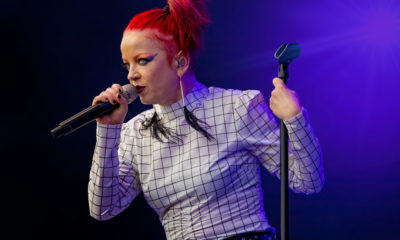
 News5 years ago
News5 years agoShirley Manson Uses Podcasts and Instagram To Open Up About Self-Harm, Mental Health and Music
-
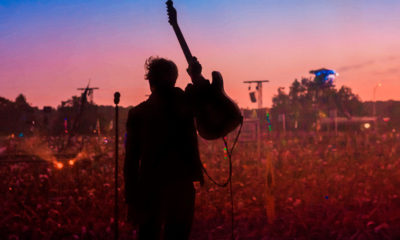
 News4 years ago
News4 years agoResource Guide For Music Professionals Who Need Help During The Coronavirus Pandemic
-
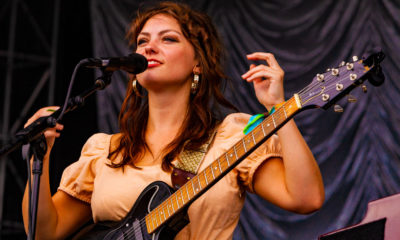
 News5 years ago
News5 years agoAngel Olsen Announces New Album “All Mirrors”
-
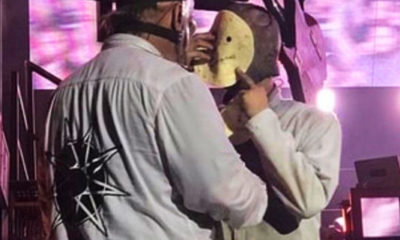
 News5 years ago
News5 years agoSlipknot’s Tortilla Man Embraces the Meme, Performs Wearing Mask Made of Actual Tortilla
-
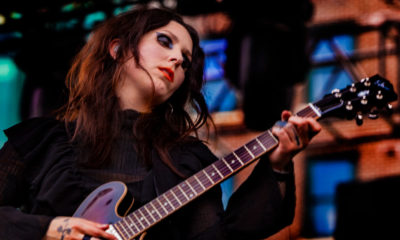
 News5 years ago
News5 years agoChelsea Wolfe Posts “Be All Things” Video Ahead of “Birth Of Violence” Album Release
-

 Festivals3 years ago
Festivals3 years agoOutside Lands 2021 Moves to Halloween Weekend with Tame Impala, Lizzo and The Strokes
-
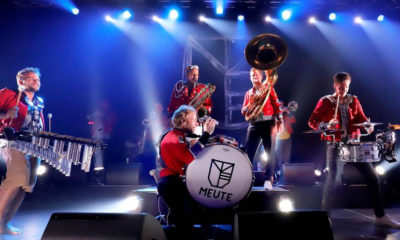
 News5 years ago
News5 years agoTechno Marching Band MEUTE Releases Music Video for the Band’s Cover of Oscar House’s Panda
-
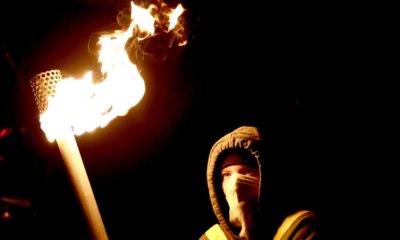
 News5 years ago
News5 years agoTwenty One Pilots announce support act for 2019 UK and European tour

